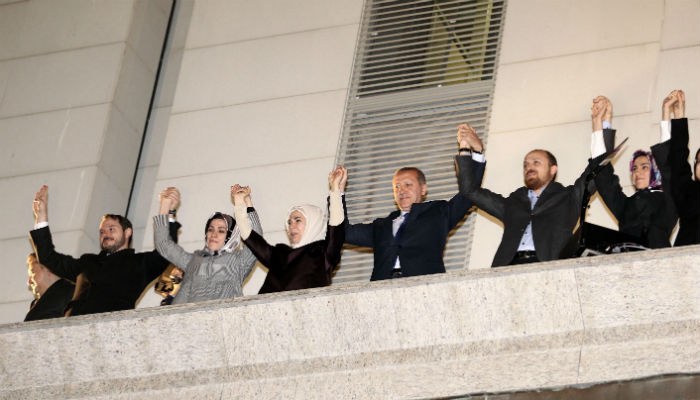An email sent by a reporter from the now-closed Today’s Zaman daily to a representative of a media organization in Turkey in which she raised questions about growing government pressure on journalists in the country attracted a backlash from the close circle of then-Prime Minister Recep Tayyip Erdoğan, according to the leaked emails of Erdoğan’s son-in-law and Energy Minister Berat Albayrak released by WikiLeaks.
Several months after a Turkish hacker group leaked the inbox of Albayrak, Wikileaks also published his emails, which display Albayrak’s heavy influence on a wide range of issues even before entering politics.
Wikileaks said in a statement that the authoritative, searchable archive of 57,934 emails from the personal email address of Albayrak spans 16 years, from April 2000 to Sept. 23 of this year.
On July 25, 2013, Today’s Zaman journalist Fatma Dişli Zıbak sent an email to Deniz Ergürel, a representative from the Medya Derneği (Medya Association), asking some questions about deteriorating press freedom in Turkey and journalist dismissals, apparently to include his organization’s views for a story she was working on.
Zıbak wrote in her email: “What is your view about the growing pressure on journalists in Turkey? Many journalists are in jail, some are unable to pursue their profession freely, while those who are doing journalism courageously face the risk of losing their jobs. (Many journalists including Yavuz Baydar have been fired in the aftermath of the Gezi Park protests.) Could someone expect an improvement in democracy in a such an environment in which the press is taken under government control and faces pressure? What problems could arise from this situation?”
Another question the journalist asked in her email questioned the problematic relations between media bosses and the government. “In order to protect freedom of the press in Turkey, how can media bosses be prevented from avoiding criticizing government mistakes in order to protect their commercial interests and get on well with the government? Could this problematic relationship be redesigned in a healthy way?” asked Zıbak.
The journalist’s email was forwarded to Salih Memecan, who was president of the Media Association at the time, with a note saying, “Today’s Zaman asked me to answer these questions on behalf of our association. What is your view?”
Then, Memecan forwarded Zıbak’s email to Serhat Albayrak, the CEO of the Turkuaz Media Group and Berat Albayrak’s brother, who then forwarded it to Berat Albayrak and Erdoğan’s children Esra, Sümeyye and Bilal Erdoğan.
Commenting on Zıbak’s questions on press freedom issues, Serhat Albayrak wrote: “I can’t find anything to say. They [a reference to the Gülen movement with which Today’s Zaman was affiliated] just revealed what their intentions are. They dare to ask these questions, they even dare to ask them to us.”
Erdoğan’s son Bilal was also outraged by the questions. He wrote: “A newspaper affiliated with the [Gülen] movement is talking about press freedom and I say, ‘Come on!’ I wonder, for example, who determines their headlines?”
Erdoğan’s daughter Sümeyye, who is also in the email traffic, wrote: “Seriously. Look at the barefacedness of these guys. … It [attacks] is from 10 sides.”
Sümeyye also asked Serhat Albayrak whether he had responded to another email from Al Jazeera that was also apparently about press freedom in Turkey and the dismissal of journalists.
In response Serhat Albayrak wrote: “I will give them my answer through a program on A Haber [a pro-government station, part of the Turkuaz Media Group] questioning why Waddah [Khanfar, Al Jazeera’s top executive from 2003 to 2011]was fired from Al Jazeera? Those guys are opening a war against us from four corners. Will we throw roses at them? War against war. ”
Erdoğan’s other daughter Esra, who is Berat’s wife, also joined the email traffic with a comment saying: ” A tooth for a tooth. Not only in Al Jazeera, the dismissal of journalists in the Western media should also be revealed. Petition [campaigns] should be held.”
Today’s Zaman faced frequent government pressure and censorship attempts due to its critical stance. Just like its sister newspaper Zaman, which was Turkey’s best-selling newspaper, Today’s Zaman was first seized by the government in March and then closed down in the aftermath of a failed coup attempt on July 15.
Hundreds of journalists from the dailies, including Zıbak, were fired from their jobs.



